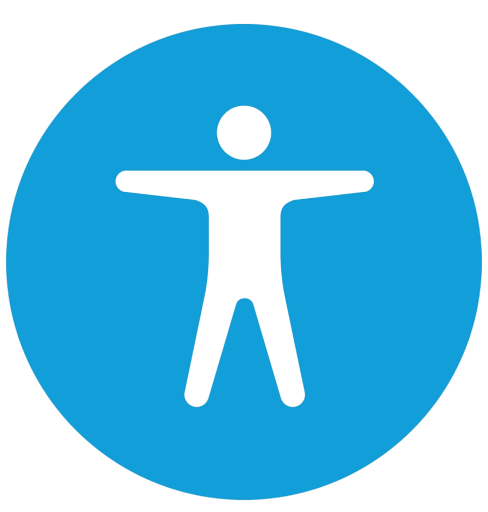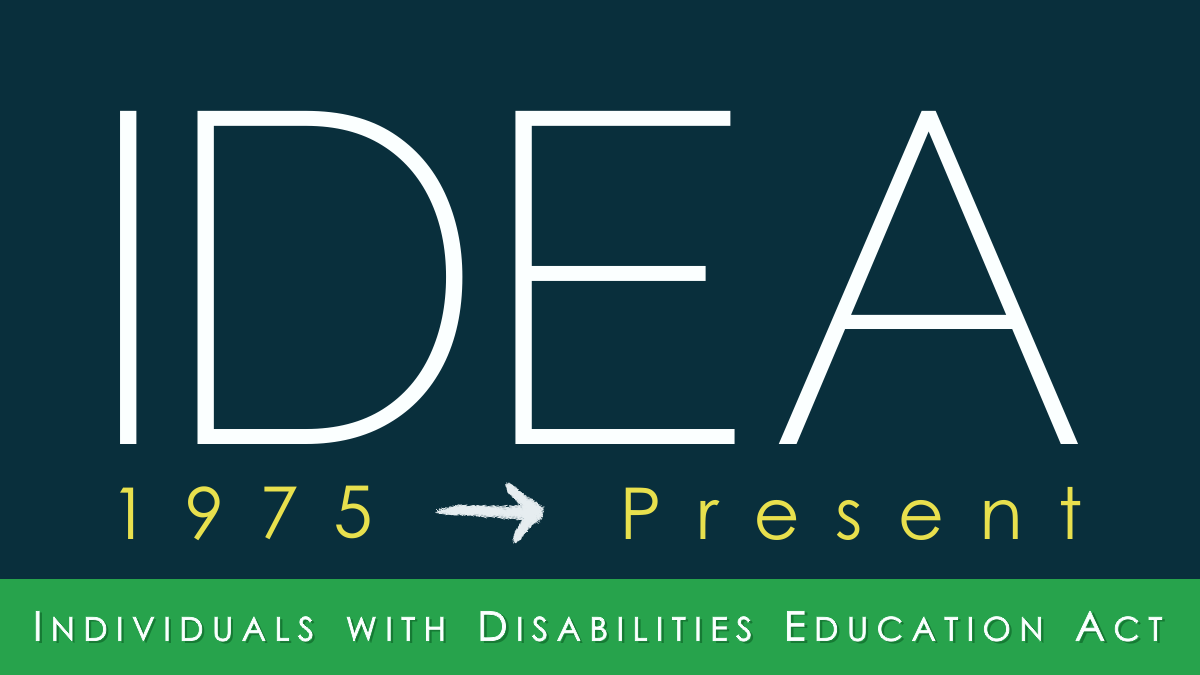Dicapta
Accessibility Tips
Accessibility Tips


Welcome back to our weekly accessibility tips. We continue our series by explaining the accessibility laws that apply from kindergarten to grade 12.
In this week's accessibility tips, we'll explain the basics of IDEA.
The Individuals with Disabilities Education Act (IDEA) is a federal law that establishes the rights and protections of students with disabilities who receive special education or services. Originally, it was known as EHA, and it was passed in 1975, but its name changed in 1990.
Before this law, the outlook was bleak for children with disabilities. In 1970, the United States only educated 1 in 5 children with disabilities, and there were laws in several states that allowed discrimination against students on the basis of cognitive or sensory disabilities. Some of these individuals ended up residing in state homes, where they did not receive an education and had the minimum accommodations necessary to live.
IDEA establishes that every student with a disability has the right to receive a free and appropriate public education in the least restrictive environment possible. The law also states that each student with a disability must have an Individualized Education Plan (IEP) that is specifically designed to meet their educational needs. It is composed of six pillars.
Appropriate Assessment:
Children can receive specialized education if they pass an evaluation process. The IDEA regulation seeks for this evaluation to be fair, not to discriminate based on bias, and to reduce the number of students who are incorrectly evaluated, among others.
Individualized Education Plan (IEP):
It is a personalized plan that describes the needs of each student with a disability and the specific educational services that will be provided to meet those needs. It is developed in collaboration with parents, school staff, and other relevant professionals. The IEP is essential in the education of children with disabilities.
Least Restrictive Educational Environment (LRE):
Students with disabilities must have the opportunity to learn and participate in the same activities as their non-disabled peers.
Parent Involvement:
Parent involvement is essential if children are to receive the best education possible. This means that parents must be involved in the development of the IEP and LRE and that they have the right to be informed about educational decisions that affect their children.
Free Appropriate Public Education (FAPE):
It is a civil right that requires schools, to provide education and related services to students with disabilities, and to prepare them adequately for future employment.
Proper procedure guarantee:
Under IDEA, parents and students can challenge any decision they feel is inappropriate for the student. This pillar basically dictates the information that parents have access to, as well as the conflict resolution guidelines they must follow.
IDEA has had a monumental impact on the employment and education of individuals with disabilities in the United States. Students with disabilities who have gone through IDEA are twice likely to obtain jobs than older students with similar disabilities who did not get the benefits from this law. In 2020, during the 45th anniversary of the law, it was estimated that approximately 7 million students had benefited from it.
Our project Enhanced Access to Video for Students with Sensory Disabilities through Emerging Technology, or EnhAccess is also financed by the department of education with funds authorized under IDEA.